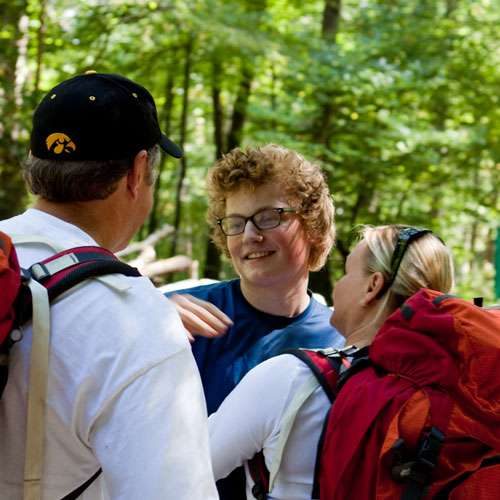When children are born they rely on their parents for everything from food to shelter to safety. Parents are the most important thing in a baby’s life, and while parents want their children to grow up to be independent, it’s not uncommon to still want to feel important in their life. But being an important part of their child’s life is very different from creating a codependent relationship with their child.
Signs of a Codependent Relationship
Codependent relationships happen when a person is overly reliant on another to validate their thoughts, emotions, and identity. If continued unchecked, a codependent parent can influence their adult child’s ability to think for themselves and implement healthy communication skills in their grown-up relationships.
- Blaming the Child: When conflict occurs and a parent jumps to blaming the child it generates feelings of guilt. Codependent parents may then use their child’s guilt to pressure them to behave the way they want them to behave.
- Passive Aggressive Treatment: Clear and open communication is crucial to a healthy parent-child relationship. When a parent is frustrated and chooses eye-rolling or the silent treatment over talking about their feelings, the child learns that they should not talk about their emotions. Children can also be left feeling hurt and confused if they don’t understand what they have done to make their parents upset or how to solve the problem.
- Being Overly Helpful: Wanting to help is a natural instinct in most parents, but when parents micromanage and try to help with everything, children are not given the opportunity to learn. When parents show their child that they require parental help for homework, chores, and everything else, the child learns that they cannot do things for themselves. They may begin to believe that they need their parent for everything because without that parental involvement, they will fail.
- Lacking Boundaries: Codependent parents may be afraid of pushing their child away emotionally, and therefore have difficulty holding healthy boundaries. Instead of holding the child accountable for their actions, they may make excuses to keep the child happy and close.
- Self Esteem Tied to the Child: Parents whose self-esteem is tied to their child may try to live vicariously through their child. When their child succeeds, they feel successful. When their child fails, they feel as if that failure is reflected on them as well. When parents’ emotions are tied to their child’s, it can create a yo-yo effect where both the parent and the child are emotionally feeding off of each other.
Working Towards Healthier Relationships
The first step to addressing codependency is acknowledging that it is happening. The next step is to create healthy boundaries within the relationship. Parents can learn to communicate their emotions in an appropriate way and hold both themselves and their children appropriately accountable for any missteps. Parents can also learn to let their child solve their own problems. Understand that it is normal for children to struggle sometimes and that through that struggle they learn new skills. They are always there for help, but they need to give their child the space to explore on their own.
Children also need to feel safe to express themselves and can learn to build enough trust to be vulnerable with their parents. Parents begin to create this safe space through empathy and being emotionally available. In some cases, it may be helpful to work with a mental health professional to repair the damages that may have occurred in the relationship.
Trails Carolina Can Help
In our decades of experience helping students and their families through our therapeutic wilderness programs, we have found that there is often blame, guilt, and frustration within the family dynamic that serves as a catalyst for negative behavior.
We support you in breaking the cycle and helping you to chart a path towards healthier, happier relationships. Focusing on the family “system” is vital to changing student’s habits and behaviors for the better, and healing your family. With this in mind, we have a variety of opportunities for you to stay involved in your child’s journey as a parent. For more information please call (828) 471-0073.
Get started today
Contact us today to learn how Trails Carolina can help your family
Trails saved my daughter’s life. Amanda is an amazing human and a brilliant therapist. I am so grateful to her, Science Steve, and the other wonderful people who could reach my daughter at a time when I could not.
Margot Lowman August 2022
Great life changing experience for our son. After becoming addicted to gaming during covid he was very depressed. At Trails he experienced the wilderness, Science Steve, learning survival skills and top notch therapy and support etc… I highly recommend! This gave our son and our family a renewed family bond full of love and excitement about his bright future.
Winnifred Wilson July 2022
Outstanding clinical work and superb staff! There’s a great culture at this company and it shows with how they engage with families/clients.
Kristin Brace June 2022
Discover If Trails Is The Right Program For Your Child
Take our short online assessment and help us better understand how we can help your family.




